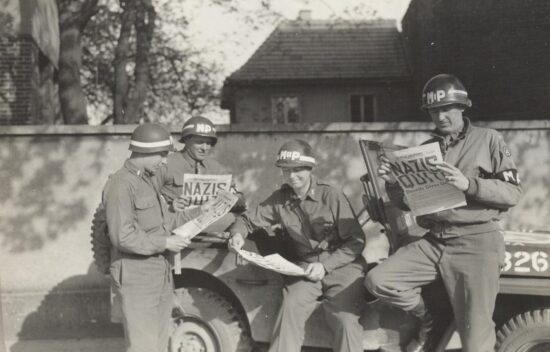
V-E Day and American Foreign Policy
On May 8, 1945, German forces formally surrendered to Allied forces, and V-E Day (Victory in Europe) celebrations erupted in the U.S. and other Allied nations. While Japan would not surrender until almost four months later, the defeat of Nazi Germany signaled that the conflict was entering its final phase. During the war, the U.S. had developed into a world leader. While the nation had long sought to avoid entangling itself formally in world affairs, a devastated Europe and the growing threat of communism led the U.S. to accept a new role as the global leader of the free world. Objectives:
- Students will review Washington’s Farewell Address.
- Students will examine U.S. foreign policy in the immediate aftermath of World War II.
- Students will compare the post-war policy with the warnings given by George Washington in his Farewell Address.
- Students will form their own opinion on the consequences of the U.S. becoming a global leader after WWII.
Resources:
- Handout A: Excerpts from George Washington’s Farewell Address
- Handout B: George C. Marshall: In Peace and War
- Handout C: President Truman’s Address before a Joint Session of Congress
Warm-up Activity: 20 minutes Directions: Have students read Handout A and answer the following questions.
- Why did Washington encourage Americans to avoid becoming involved in European political affairs?
- In his address, Washington stated, “There can be no greater error than to expect or
calculate upon real favors from nation to nation. It is an illusion, which experience must cure, which a just pride ought to discard.” Is this a pessimistic or realistic outlook on human nature? Explain your answer. Activity: 40 minutes Directions: Have students read Handout B and Handout C and answer the following questions.
- List two reasons why Marshall and Truman believed that the U.S. needed to send financial assistance to Europe after WWII.
- In your opinion, were the Marshall Plan and Truman Doctrine designed to further U.S. interests or were they charitable policies? Could they be both?
- How did the policies of Marshall and Truman differ from the ideas outlined in Washington’s Farewell Address?
- What do you anticipate the consequences, either positive or negative, of this change? Explain your reasoning.